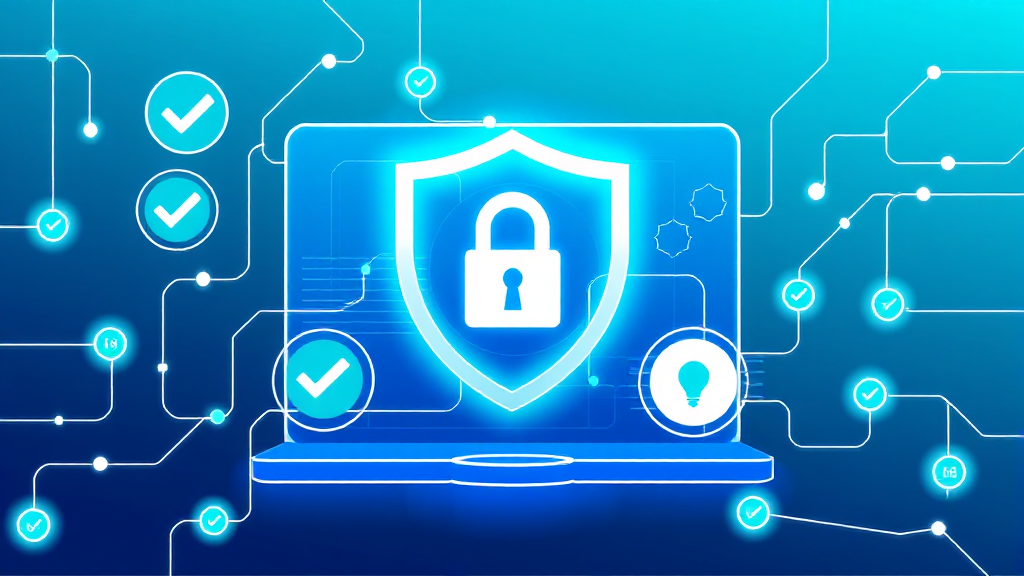Ensuring Security and Compliance in MLM Software Development

For a deeper dive, see our
.
This image illustrates how secure data protection is implemented in MLM platforms through encryption, legal compliance, and robust security protocols.
Introduction
The MLM (Multi-Level Marketing) industry is highly dynamic, with businesses relying on sophisticated software solutions to manage complex operations. As digital transformation continues to shape the sector, ensuring the
security
and
compliance
of MLM software has become a critical concern for business leaders. From data protection to regulatory adherence, failure to meet these standards can result in significant financial losses, legal penalties, and reputational damage.
This article explores the importance of security and compliance in MLM software development, outlines key considerations, and provides actionable insights to help businesses maintain trust and operational integrity.
The Importance of Security & Compliance in MLM Software
In the context of MLM businesses, software serves as the backbone for operations such as recruitment, compensation tracking, data management, and communication. Given the sensitive nature of personal and financial data handled by these systems,
security
is paramount to prevent unauthorized access and data breaches.
Compliance, on the other hand, ensures that businesses adhere to legal and regulatory requirements governing data protection, anti-corruption laws, and consumer privacy. Non-compliance can lead to fines, legal action, and loss of customer trust.
Key Security Concerns in MLM Software
Data Protection
MLM software often handles large volumes of personal and financial data, including member details, transaction records, and compensation plans. Protecting this information from cyber threats is a top priority. Implementing robust encryption protocols, secure authentication mechanisms, and regular security audits are essential steps to safeguard data.
Access Control
Ensuring that only authorized personnel can access sensitive information is critical. Role-based access control (RBAC) systems help restrict access to data based on job roles, reducing the risk of internal breaches.
Regular Updates & Patch Management
Software vulnerabilities can leave systems exposed to attacks. Regularly updating software and applying patches is a must to mitigate these risks and ensure long-term security.
Compliance Challenges in MLM Software Development
Regulatory Requirements
MLM businesses must comply with a variety of regulations, including data protection laws (e.g., GDPR), anti-money laundering (AML) regulations, and industry-specific guidelines. Non-compliance can result in severe penalties.
Anti-Corruption Laws
The global nature of the MLM industry requires adherence to international anti-corruption frameworks such as the Foreign Corrupt Practices Act (FCPA). Software systems must be designed to prevent and detect bribery or fraudulent activities.
Consumer Protection Laws
Regulations like the FTC Act in the U.S. mandate clear disclosure of business practices and compensation plans. Ensuring that your software provides accurate and transparent information is essential for compliance.
Best Practices for Secure & Compliant MLM Software Development
1. Conduct Regular Security Audits
Performing periodic security audits helps identify vulnerabilities and ensures compliance with industry standards such as ISO/IEC 27001 or SOC 2.
2. Implement Strong Data Encryption
Encrypt sensitive data both at rest and in transit to protect against unauthorized access.
3. Adopt Identity and Access Management (IAM) Systems
Use IAM tools to manage user identities, permissions, and authentication processes, ensuring that only authorized individuals can access specific data.
4. Incorporate Compliance Monitoring Tools
Deploy automated compliance monitoring solutions to track adherence to regulatory requirements and generate audit reports for review.
5. Educate Users on Security Best Practices
Train employees and members on security protocols, such as recognizing phishing attempts and maintaining strong passwords, to minimize the risk of human error.
Threat Mitigation Strategies
Encryption
Encrypting data ensures that even if it is intercepted, it cannot be read without the decryption key. This is particularly important for sensitive information like member details and compensation plans.
Multi-Factor Authentication (MFA)
Implement MFA to add an extra layer of security when accessing critical systems. This reduces the risk of unauthorized access even if passwords are compromised.
Continuous Monitoring
Monitor software activity in real-time to detect and respond to potential threats quickly. Implementing intrusion detection systems and log analysis tools can help identify suspicious behavior early.
Conclusion
Ready to take the next step?
.
Security and compliance are not optional but a necessity for MLM businesses looking to thrive in today’s digital landscape. By adopting best practices, leveraging advanced technologies, and staying ahead of regulatory changes, companies can ensure the safety of their data and operations.
As the industry evolves, investing in robust software solutions that prioritize security and compliance will be key to maintaining trust with stakeholders and avoiding costly legal repercussions.
Related Articles
Auditing Smart Contracts: A Comprehensive Guide for MLM Businesses
Boost trust & efficiency in your MLM business with our comprehensive guide to auditing smart contracts. Learn how to ensure secure, transparent transactions.
Cybersecurity Compliance: Why It’s Non-Negotiable for Your Business
Here is a concise and compelling SEO meta description for your blog post: Stay ahead of cyber threats! Learn why cybersecurity compliance is non-negotiable for
Why EifaSoft Stands Out in MLM Software Development: A Comprehensive Guide
Discover what sets EifaSoft apart in MLM software development. Get a comprehensive guide to the latest innovations, including AI-driven insights and dynamic dat